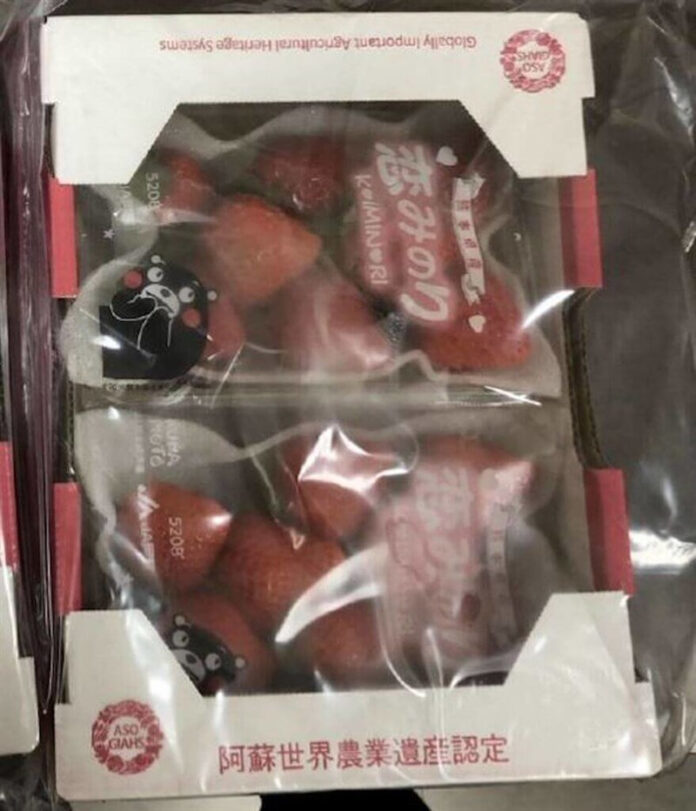In a recent announcement, the Taiwan Food and Drug Administration (TFDA) revealed that nearly 10% of the 877 fruit, vegetable, and agricultural product samples tested across Taiwan between March and April failed to meet pesticide residue standards. This revelation shines a spotlight not only on the state of food safety in Taiwan but also on the growing challenge of regulating global agricultural imports and ensuring domestic compliance.
📋 The Test Results in Numbers
Out of the 877 total samples tested:
- 82 samples (9.4%) failed pesticide residue standards.
- Of these, 611 were part of an enhanced monitoring program, with 79 found to be non-compliant.
- An additional 266 randomly selected samples revealed three more instances of failed compliance.
🍓 Offending Products: From Japan to Iran
Among the flagged imports:
- Japanese strawberries:
- Contaminated with 1.13 ppm of isopyrazam, an unauthorized pesticide for strawberries.
- Importer was fined NT$60,000 (approximately US$2,013).
- A second batch of strawberries from the same Japanese importer was found with 0.19 ppm of spirotetramat, another unauthorized pesticide for strawberries, yielding an increased fine of NT$120,000 (approximately US$4,029) due to the repeat offense.
- Roses from Iran:
- Found with 0.15 ppm of cypermethrin, a pesticide not authorized for this flower species.
- White fungus from China:
- Contaminated with 0.32 ppm of imidacloprid, exceeding allowable limits.
🌿 Domestic Compliance Challenges
Closer to home, locally grown cilantro sourced from a restaurant was found containing 0.02 ppm each of chlorpyrifos and ethion, both banned for use on the herb. The TFDA has launched further investigations to trace the root cause of the contamination.
🔍 Why This Matters
This announcement by the TFDA is more than just a routine press release. It shines a light on:
- The increasing complexity of global supply chains and the challenge of regulating imports.
- The rising trend of pesticide violations in popular consumer goods, highlighting the vulnerability of Taiwan’s agricultural import market.
- The need for stronger enforcement measures and tighter import inspection protocols.
Moreover, these findings raise questions about long-term sustainability and health impacts, especially for sensitive populations such as children, the elderly, and those with preexisting medical conditions.
👥 What Authorities Are Doing
According to TFDA Southern Center Director Wei Jen-ting (魏任廷):
- The TFDA will intensify monitoring, especially for repeat offenders.
- The agency will collaborate closely with importers and vendors to educate and enforce safe pesticide usage.
- Offending importers have been issued fines and instructed to review their internal quality controls.
⚡ The Bigger Picture
With nearly one in ten samples failing the inspection, this is a critical moment for Taiwan to revisit its agricultural and import policies. Should this trend continue, it could:
- Impact consumer trust and sales.
- Trigger stricter import and export scrutiny from trade partners.
- Lead to more extensive fines and penalties for suppliers and retailers.
The challenge for Taiwan is to balance its global trade connections with ensuring the safety and trustworthiness of its food supply. Strong enforcement, traceability, and cooperation between stakeholders will be pivotal in achieving this goal.
❓(FAQs
What was the overall failure rate of the tested samples?
Around 9.4% (or 82 out of 877) tested samples failed pesticide residue standards.
Which products were most affected?
Imported strawberries from Japan, roses from Iran, and domestically grown cilantro were the most notable offenders.
What penalties were levied?
Importers received fines ranging from NT$60,000 (~US$2,013) to NT$120,000 (~US$4,029) for repeat violations.
What are the potential health impacts?
While acute toxicity is rare, long-term exposure to unauthorized pesticides can potentially affect human health, especially in sensitive groups.
What is the TFDA doing to prevent future incidents?
The TFDA is ramping up testing, intensifying spot checks, issuing penalties, and providing educational support to importers and vendors.



